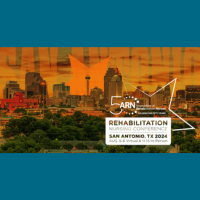See the 2022 ARN Bylaws changes that can open doors to new leadership
We are excited to share the good news that the ARN membership have resoundingly approved the recently proposed Bylaws changes.
The proposed and approved changes will help ARN realize its visions of increasing inclusivity, efficiency, and effectiveness for ARN members. We hope these changes open doors to our members and showcase the vast and diverse talents within rehabilitation. The updated ARN bylaws are now available for reference.
The success and expansion of ARN requires vision and courage to make bold changes.
The Board of Directors (BOD) spent many hours deliberating the recommended changes and the best direction forward for ARN. In a culture of evidence-based practice, it is the responsibility of the BOD, and staff of any association, to use the best evidence and practices available to make decisions. This often involves challenging long-held beliefs that may no longer be considered in the best interest of the members and organization at large. Along with other associations, ARN is experiencing challenges with member engagement and number of members willing to participate due to the challenging last three years. In the last several years, we have seen fewer members volunteer for committee and board positions. In addition, nurses have been leaving field to pursue other non-nursing opportunities.
It is important that we work to ensure we have rehab nurses serving in leadership positions with the skill set and experience necessary for that role.
As the Bylaws have shifted, the change to a competency-based board and Nominating and Leadership Development Committee (NLDC) focuses on assessing the skills and strengths of the current board (or NLDC) members, identifying gaps, and identifying potential members who can fill those gaps. For example, if you have a board that has several members who have a strong skill set in one area such as education, case management, but board members have limited expertise in another important area (e.g. financial, administration), then the goal would be to identify potential members who have that unmet skill set.
For the NLDC, the goal might be to appoint committee members who come from across different chapters or parts of the country, and/or who have served in a variety of ARN leadership roles at the committee and/or board level.
It's less about "who" you know, and more about "what" you know.
Assessing existing skills sets and gaps is critical to having a highly functioning board and NLDC. What the BOD is trying to move away from is election-based on "who" members know (or have heard of), to an election where candidates have the skills to fill existing gaps in the BOD or NLDC.
The make-up of the board and the NLDC has been skewed in the past. For example, at one time the board was primarily made up of academic rehab nurses and executive leaders, and yet most of our members are staff nurses and middle managers, so it was important to make sure that our board includes members who can represent our members. Additionally, we have not always had the necessary set of complementary skills across all board members.
Strategically identifying potential board members with the skills that are needed to fill gaps is crucial to success of ARN.
If the committee puts together a competitive slate, all candidates should be qualified and meet the needs for skills and diversity. This proposed change implies there can only be one desirable candidate.
Historically, ARN has only had a few applicants for many of its positions. When the rigorous interview process is completed, the NLDC has often only had one qualified candidate per slot on the ballot. Having a slate is a much more deliberative and strategic process and will not only require that the NLDC recruit highly qualified candidates for each position, but also require that they implement a "pathway to leadership" plan to help a broader variety of members to become involved with ARN. The NLDC has been working on this and is implementing steps to expand our leadership pool.
These Bylaw changes were designed to increase inclusivity, efficiency, and effectiveness approved by membership.
We look forward to the future of the organization with more room for up-and-coming leadership and ideas to carry us forward.

2024 Rehab Nursing Conference
Reviving Hope, Restoring Lives: Celebrating 50 Years of Rehab Nursing Excellence
Join us in celebrating ARN's 50th conference both virtually and in-person in San Antonio, TX, this August 2024. Receive your continuing education units (CEUs) through inspirational live sessions and on-demand recordings.
